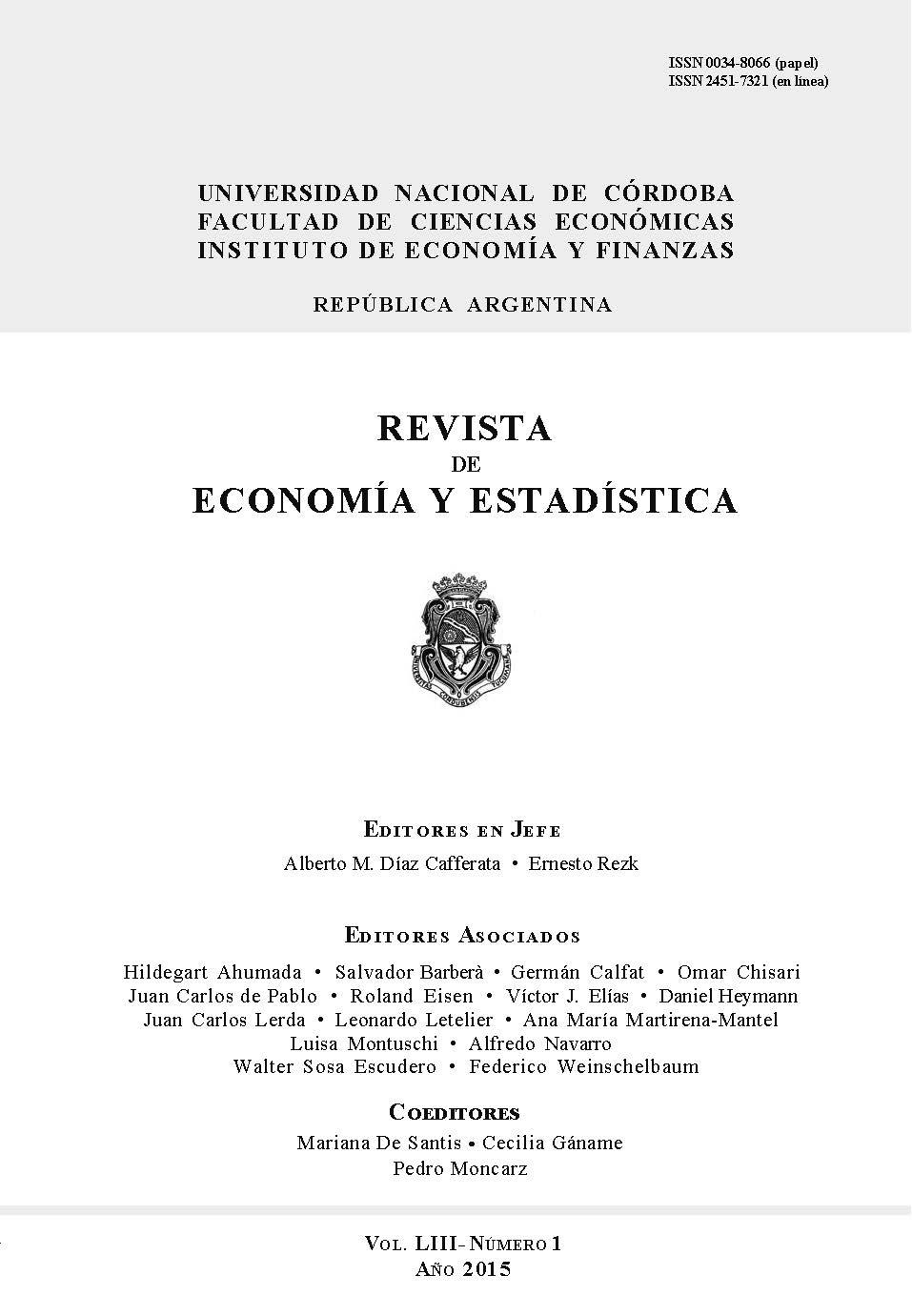Happiness and Economics. A description of the Reciprocal Effects between Subjective and Objective Indicators of Well-being
DOI:
https://doi.org/10.55444/2451.7321.2015.v53.n1.16412Keywords:
panel VAR, happiness, subjective well-being , economic growthAbstract
Money makes you happy. Or is it vice versa? The present work is an attempt to identify, for Latin America, if economic growth (measured by Gross Domestic Product) as a well-being´sobjective indicator, affects subjective indicators of well-being (happiness). Or, on the contrary, are these subjective indicators that predict (may be because they determine) the behavior of GDP. On that propose, data on Latin America for the years 1995-2010 had been taken, including both types of indicators (objective and subjective). To avoid a model that imposes a certain direction of causality, an Autoregressive Vector methodology had been chosen, and to preserve the intra-country effects, a Panel model. That is, the methodology used is Panel-VAR. Evidence suggests that these relationships exists and manifest predominantly more strongly in the direction from the subjective to objective variable (except in the case of crisis). The subjective indicator anticipates (Wiener-Grangers cause) the objective indicator.It is also possible to identify differences between happiness and expectations.
Downloads
Downloads
Published
Issue
Section
License
Copyright (c) 2015 Leonardo A. Caravaggio

This work is licensed under a Creative Commons Attribution-NonCommercial-NoDerivatives 4.0 International License.
Authors who have publications with this journal agree to the following terms:
Authors retain their copyright and grant the journal the right of first publication of their work, which is simultaneously subject to the Creative Commons Attribution-NonCommercial-NoDerivatives 4.0 International License that allows third parties to share the work provided that its author and first publication in this journal are indicated.
Authors may adopt other non-exclusive licensing arrangements for distribution of the published version of the work (e.g. depositing it in an institutional telematic archive or publishing it in a monographic volume) as long as the initial publication in this journal is indicated.
Authors are allowed and encouraged to disseminate their work via the Internet (e.g. in institutional telematic archives or on their website) before and during the submission process, which can lead to interesting exchanges and increase citations of the published work. (See The Open Access Effect)














